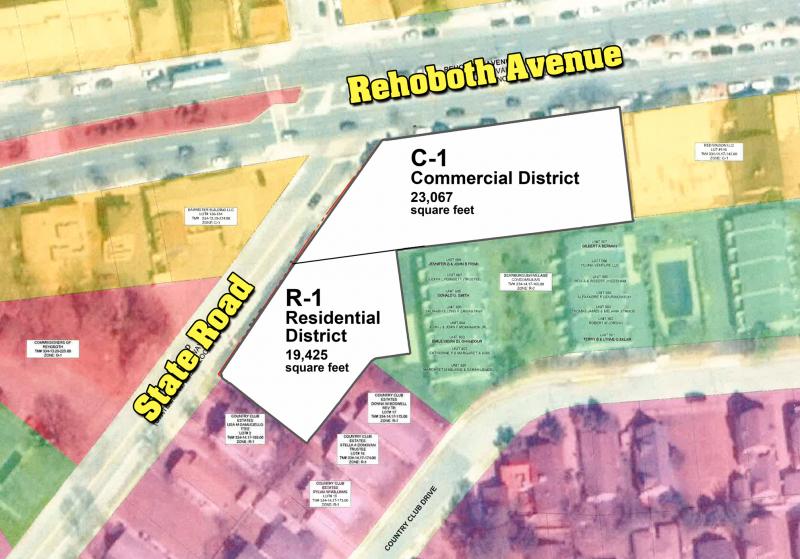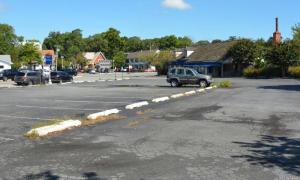Parking questions delay action on 330 Rehoboth Ave. rezoning
Rehoboth Beach commissioners delayed action on a rezoning request for 330 Rehoboth Ave. after questions were raised about how the city’s current building inspector would interpret code-related parking requirements if the property owners only built the proposed hotel on the commercial portion, but still wanted a structure for underground parking on the residential portion of the property.
The city conducted a public hearing Feb. 18 on a rezoning request for the split-zoned 330 Rehoboth Ave., which has roughly 23,000 square feet of C-1 commercial along Rehoboth Avenue and about 19,500 square feet of R-1 residential along State Road.
The request first surfaced in August 2019, but legal issues delayed action until the property was purchased for $4.2 million in January 2021 by 330 Hospitality Group LLC. That corporation is a partnership between Bette Gallo, founder and president of Gallo Realty, and Lockwood Design and Construction owner Don Lockwood.
Most recently, during a meeting in December, the city’s planning commission voted against recommending to city commissioners the rezoning of the residential portion.
Representing 330 Hospitality, attorney David Hutt began the Feb. 18 public hearing by saying there are two paths for the property owners to take – rezoning or variance requests from the board of adjustment. He argued that rezoning made the most sense because it provides the city and surrounding property owners with guidelines for enforcement in the future. Split zoning is not a recommended practice and is considered haphazard, he said.
Currently, the restrictive covenants proposed by the developer to the planning commission say there’s a 30-year life to the restrictions. Hutt said his clients would be willing to make it 50 years.
As before, during the planning commission’s deliberations, none of the public spoke in favor of the rezoning. The public recognized the property should be redeveloped, but questioned why the hotel couldn’t stay in the commercial portion with the parking lot remaining as is.
Scarborough Avenue resident and planning commission member John Dewey, who said he was commenting as a resident, said the city’s zoning maps need to have meaning and be enforced as laid out. People are making life decisions based on how the city’s properties are zoned, he said.
Questions about parking and needed variances came about after Commissioner Susan Gay asked if the applicants would be willing to redevelop the commercial portion of the property if the city didn’t require a variance to keep the parking lot use as is.
Hutt said his applicants would be agreeable to that, but they had been told by the city’s previous building inspector a variance would be needed.
City solicitor Glenn Mandalas said he thought the plan could proceed without the rezoning or a variance if all the redevelopment took place on the commercial portion.
Commissioner Ed Chrzanowski clarified the question from Gay to see if the applicants would still want underground parking on the parking lot portion of the property.
Hutt said yes, which prompted Chrzanowski to say that’s probably what the variance would be needed for in the previous building inspector’s judgment.
Hutt’s clarification also prompted Mandalas to modify his statement by saying the underground parking could require a variance. However, Mandalas also deferred to Matt Janis, the city’s current building inspector. Janis was not available during the meeting to provide his interpretation of the code.
Lockwood said he and Gallo would be happy to move forward on the project if the hotel could be built on the commercial portion and no variance was needed for the underground parking on the residential portion.
In the end, commissioners delayed taking action on the rezoning request in favor of getting more information from city staff. The group also kept the official record open for public comment through Friday, Feb. 25, in case someone listening to the meeting wanted to add any information.
In addition to Janis’ interpretation of the code, commissioners also asked for a planning commission representative to be present at the next discussion, and for city staff to find out how the parcel has been taxed over the years – as residential or commercial.















































